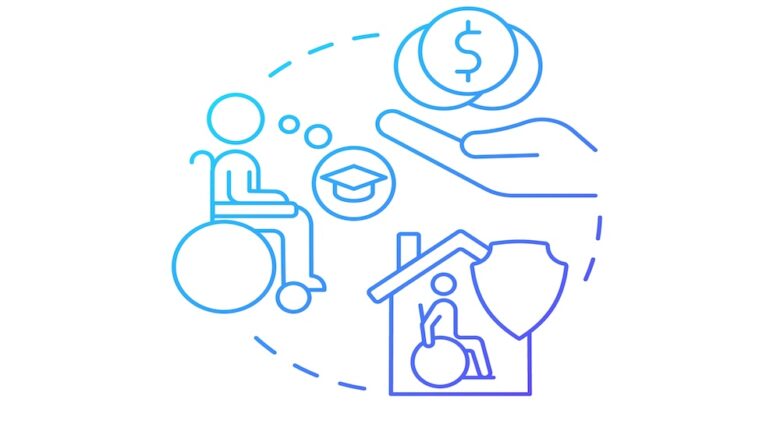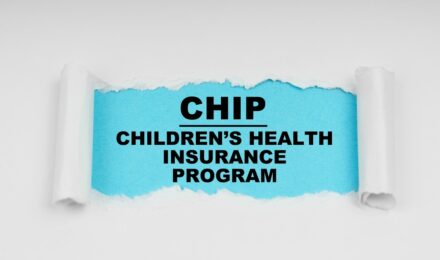Contents
Receiving Social Security Disability Insurance (SSDI) benefits can provide financial relief for individuals with disabilities. However, many recipients are unaware of additional benefits beyond their monthly checks. These lesser-known benefits can significantly enhance their quality of life, financial security, and independence.
SSDI benefits provide financial assistance to individuals with disabilities, enabling them to meet basic needs and maintain a decent standard of living. SSDI benefits are typically used for living expenses, such as rent/mortgage, utilities, food and clothing. It can also cover medical expenses, including medications, doctors visits, hospital stays, and medical equipment. A variety of other wide ranging items like hygiene, rehab, transportation and even spousal can also be included.
The Social Security Administration (SSA) does not restrict how SSDI benefits are used, but recipients are expected to use them for necessary expenses. Recipients must report any changes in income, resources, or living arrangements to ensure continued eligibility.
Medicaid and Medicare Coverage
SSDI recipients automatically qualify for Medicare after a two-year waiting period. This comprehensive health insurance covers hospital stays, doctor visits, and prescription medications. Additionally, many SSDI recipients are eligible for Medicaid, which provides secondary coverage for services not covered by Medicare. This dual coverage ensures access to essential healthcare services.
Vocational Rehabilitation Services
The SSA’s vocational rehabilitation services aim to help SSDI recipients develop skills, find employment, and achieve self-sufficiency. These services, tailored to individual needs, enable recipients to overcome disability-related barriers and re-enter the workforce. Vocational rehabilitation may include job training, education, career counseling, and assistance with resume writing, job placement, and interview preparation. Additionally, recipients may receive support with workplace accommodations, assistive technology, and transportation costs. [1]
The SSA partners with state vocational rehabilitation agencies and employment networks to provide these services. Recipients work with vocational rehabilitation specialists to create personalized plans, outlining specific goals, objectives, and timelines. Services may also include job coaching and mentoring, on-the-job training, self-employment assistance, business start-up support, and ongoing support and follow-up.
By participating in vocational rehabilitation, SSDI recipients can enhance their job prospects, increase earnings potential, develop transferable skills, improve overall well-being, and potentially reduce reliance on SSDI benefits.
Eligibility for vocational rehabilitation services is determined on a case-by-case basis. SSDI recipients interested in these services should contact their local SSA office or state vocational rehabilitation agency to explore available options.
Plan to Achieve Self-Support (PASS)
A PASS allows SSDI recipients to set aside income and resources for specific expenses related to achieving self-support. This plan enables individuals to pursue vocational goals, start businesses, or obtain education and training without jeopardizing their benefits. By allocating income towards these expenses, recipients can work towards financial independence. [2]
Impairment-Related Work Expenses (IRWE)
IRWE deductions enable SSDI recipients to subtract disability-related expenses from their countable income. This reduces their overall income, ensuring continued eligibility for benefits. Eligible expenses include wheelchair purchases, medication, assistive technology, and transportation costs.
Subsidy and Special Conditions
Some SSDI recipients receive subsidies or special conditions that reduce their countable income. Examples include vocational rehabilitation programs or support from the Department of Veterans Affairs. These subsidies enable recipients to maintain benefits while working or participating in vocational rehabilitation.
The SSA’s Compassionate Allowances program expedites benefit approval for individuals with severe disabilities, such as terminal illnesses or rare conditions. This ensures rapid access to financial assistance and healthcare services.
Ticket to Work Program
The Ticket to Work program is a free vocational rehabilitation program offered by the SSA to SSDI recipients. The program aims to help recipients find employment, achieve self-sufficiency, and reduce reliance on SSDI benefits. Participants work with Employment Networks (ENs) – private or public organizations contracted by the SSA – to receive personalized vocational rehabilitation services. These services may include job training, education, career counseling, resume writing, job placement, and interview preparation. ENs also provide ongoing support and follow-up to ensure successful employment outcomes.
Participating in the Ticket to Work program offers several benefits, including increased earnings potential, improved job prospects, development of transferable skills, enhanced independence and self-esteem, and potential reduction or elimination of SSDI benefits. [3]
To participate, SSDI recipients receive a “Ticket” – a voucher – which they can assign to an EN of their choice. The EN then provides vocational rehabilitation services, and the SSA pays the EN based on the participant’s employment success. The program is voluntary, and participants can choose to withdraw at any time. The Ticket to Work program encourages SSDI recipients to explore employment opportunities, gain financial independence, and achieve their vocational goals. For more information, SSDI recipients can contact the SSA or visit the Ticket to Work website.
SSDI recipients may also be eligible for health insurance premium payments through the SSA. This benefit covers Medicare Part B premiums, ensuring continuous healthcare coverage.
Family Benefits
Children of SSDI recipients may qualify for dependent benefits, including education assistance. These benefits help cover education expenses, ensuring access to higher education and future opportunities. Spouses of SSDI recipients may also be eligible for benefits, including retirement and disability benefits. These benefits provide financial security for spouses, ensuring a stable income stream.
While SSDI benefits provide essential financial support, understanding these lesser-known benefits can significantly enhance recipients’ quality of life. Consulting with an SSA representative or benefits counselor can help recipients identify eligible benefits, develop personalized plans, and maximize financial security.
By exploring these additional benefits, SSDI recipients can unlock new opportunities for independence, financial stability, and well-being. Beyond the monthly check, these benefits empower individuals with disabilities to rebuild their lives, pursue their passions, and achieve self-sufficiency.
Sources
- Vocational Rehabilitation Cost Reimbursement Program | The Work Site | SSA
- KA-02297 (ssa.gov)
- Services to Secure Ticket to Work, SSDI, and SSI Benefits | Disability Services of America
Contents
Receiving Social Security Disability Insurance (SSDI) benefits can provide financial relief for individuals with disabilities. However, many recipients are unaware of additional benefits beyond their monthly checks. These lesser-known benefits can significantly enhance their quality of life, financial security, and independence.
SSDI benefits provide financial assistance to individuals with disabilities, enabling them to meet basic needs and maintain a decent standard of living. SSDI benefits are typically used for living expenses, such as rent/mortgage, utilities, food and clothing. It can also cover medical expenses, including medications, doctors visits, hospital stays, and medical equipment. A variety of other wide ranging items like hygiene, rehab, transportation and even spousal can also be included.
The Social Security Administration (SSA) does not restrict how SSDI benefits are used, but recipients are expected to use them for necessary expenses. Recipients must report any changes in income, resources, or living arrangements to ensure continued eligibility.
Medicaid and Medicare Coverage
SSDI recipients automatically qualify for Medicare after a two-year waiting period. This comprehensive health insurance covers hospital stays, doctor visits, and prescription medications. Additionally, many SSDI recipients are eligible for Medicaid, which provides secondary coverage for services not covered by Medicare. This dual coverage ensures access to essential healthcare services.
Vocational Rehabilitation Services
The SSA’s vocational rehabilitation services aim to help SSDI recipients develop skills, find employment, and achieve self-sufficiency. These services, tailored to individual needs, enable recipients to overcome disability-related barriers and re-enter the workforce. Vocational rehabilitation may include job training, education, career counseling, and assistance with resume writing, job placement, and interview preparation. Additionally, recipients may receive support with workplace accommodations, assistive technology, and transportation costs. [1]
The SSA partners with state vocational rehabilitation agencies and employment networks to provide these services. Recipients work with vocational rehabilitation specialists to create personalized plans, outlining specific goals, objectives, and timelines. Services may also include job coaching and mentoring, on-the-job training, self-employment assistance, business start-up support, and ongoing support and follow-up.
By participating in vocational rehabilitation, SSDI recipients can enhance their job prospects, increase earnings potential, develop transferable skills, improve overall well-being, and potentially reduce reliance on SSDI benefits.
Eligibility for vocational rehabilitation services is determined on a case-by-case basis. SSDI recipients interested in these services should contact their local SSA office or state vocational rehabilitation agency to explore available options.
Plan to Achieve Self-Support (PASS)
A PASS allows SSDI recipients to set aside income and resources for specific expenses related to achieving self-support. This plan enables individuals to pursue vocational goals, start businesses, or obtain education and training without jeopardizing their benefits. By allocating income towards these expenses, recipients can work towards financial independence. [2]
Impairment-Related Work Expenses (IRWE)
IRWE deductions enable SSDI recipients to subtract disability-related expenses from their countable income. This reduces their overall income, ensuring continued eligibility for benefits. Eligible expenses include wheelchair purchases, medication, assistive technology, and transportation costs.
Subsidy and Special Conditions
Some SSDI recipients receive subsidies or special conditions that reduce their countable income. Examples include vocational rehabilitation programs or support from the Department of Veterans Affairs. These subsidies enable recipients to maintain benefits while working or participating in vocational rehabilitation.
The SSA’s Compassionate Allowances program expedites benefit approval for individuals with severe disabilities, such as terminal illnesses or rare conditions. This ensures rapid access to financial assistance and healthcare services.
Ticket to Work Program
The Ticket to Work program is a free vocational rehabilitation program offered by the SSA to SSDI recipients. The program aims to help recipients find employment, achieve self-sufficiency, and reduce reliance on SSDI benefits. Participants work with Employment Networks (ENs) – private or public organizations contracted by the SSA – to receive personalized vocational rehabilitation services. These services may include job training, education, career counseling, resume writing, job placement, and interview preparation. ENs also provide ongoing support and follow-up to ensure successful employment outcomes.
Participating in the Ticket to Work program offers several benefits, including increased earnings potential, improved job prospects, development of transferable skills, enhanced independence and self-esteem, and potential reduction or elimination of SSDI benefits. [3]
To participate, SSDI recipients receive a “Ticket” – a voucher – which they can assign to an EN of their choice. The EN then provides vocational rehabilitation services, and the SSA pays the EN based on the participant’s employment success. The program is voluntary, and participants can choose to withdraw at any time. The Ticket to Work program encourages SSDI recipients to explore employment opportunities, gain financial independence, and achieve their vocational goals. For more information, SSDI recipients can contact the SSA or visit the Ticket to Work website.
SSDI recipients may also be eligible for health insurance premium payments through the SSA. This benefit covers Medicare Part B premiums, ensuring continuous healthcare coverage.
Family Benefits
Children of SSDI recipients may qualify for dependent benefits, including education assistance. These benefits help cover education expenses, ensuring access to higher education and future opportunities. Spouses of SSDI recipients may also be eligible for benefits, including retirement and disability benefits. These benefits provide financial security for spouses, ensuring a stable income stream.
While SSDI benefits provide essential financial support, understanding these lesser-known benefits can significantly enhance recipients’ quality of life. Consulting with an SSA representative or benefits counselor can help recipients identify eligible benefits, develop personalized plans, and maximize financial security.
By exploring these additional benefits, SSDI recipients can unlock new opportunities for independence, financial stability, and well-being. Beyond the monthly check, these benefits empower individuals with disabilities to rebuild their lives, pursue their passions, and achieve self-sufficiency.






